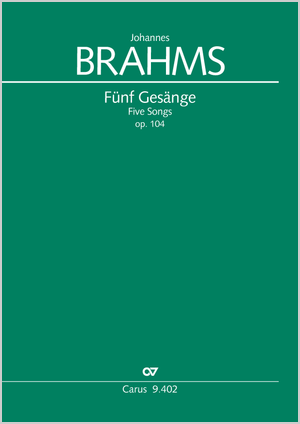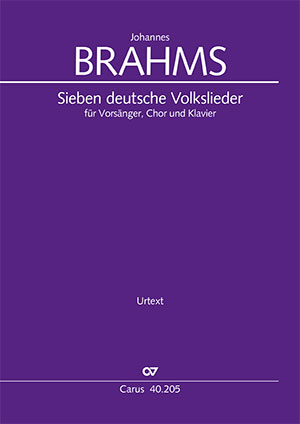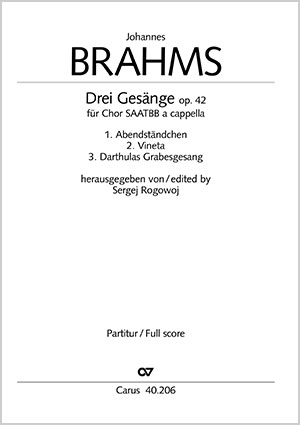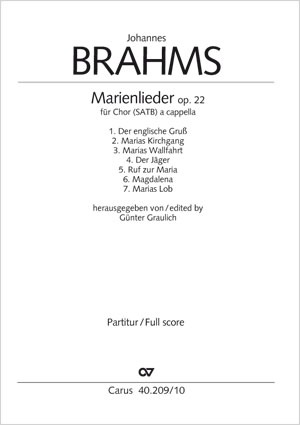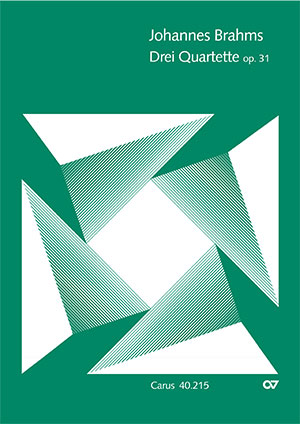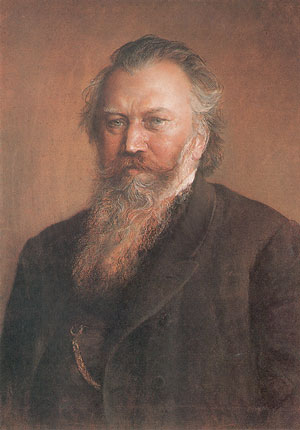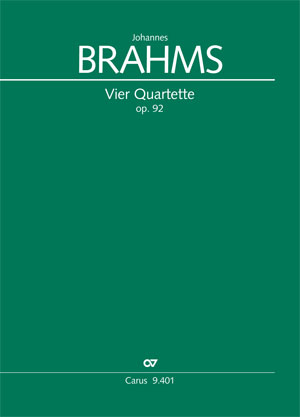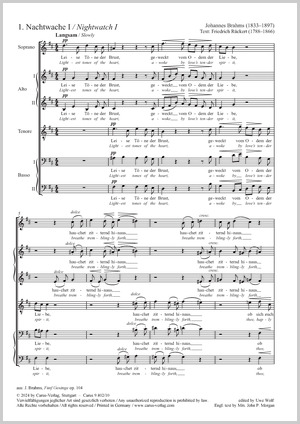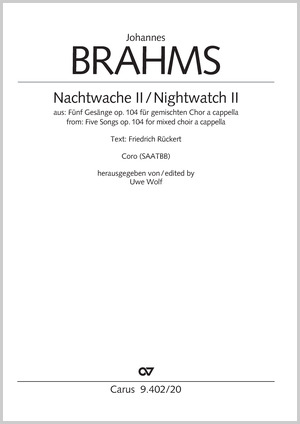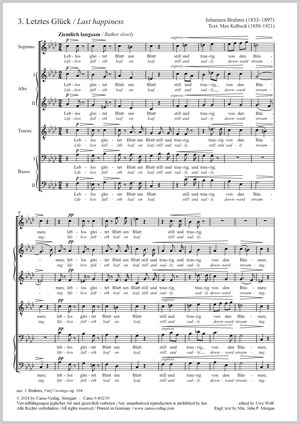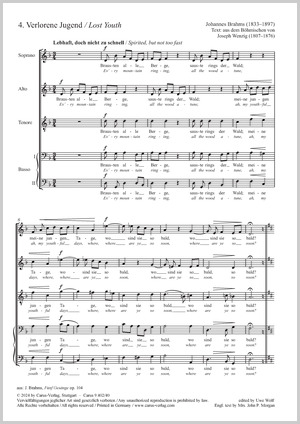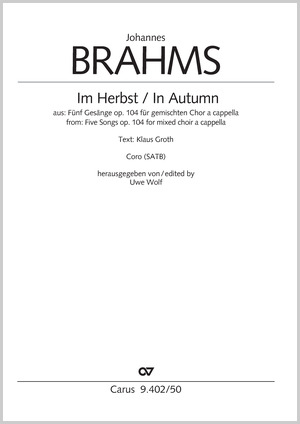Five Songs
for mixed choir a cappella op. 104
“Lösche die Lampe getrost, hülle in Frieden dich ein” (“Put out thy lamp with good heart, lay thee then peacefully down”) – Johannes Brahms’s final cycle of secular songs for mixed choir a cappella paints a striking picture of mortality, ultimate happiness and lost youth. The 4- to 6-part songs fascinate with their immense power and range of expression, which runs from short, quiet, melancholy phrases (“breathe tremblingly forth”, “O lifeless falleth”) to elements of folk song (the horn calls in Nightwatch II) to mighty climaxes and double-choir effects produced with great economy of means. The closing movement In Autumn, with its idiosyncratic harmonies, is certainly one of Brahms’s best secular compositions.
All the songs are also available separately and as digital editions. The accompanying English text is the translation authorized by the composer himself.
Contents
-
Composer
Johannes Brahms
| 1833-1897Johannes Brahms' study of musical tradition was of crucial importance to his output: he combined church modes, canonic technique, Baroque style and diction, Bach's counterpoint and Beethoven's thematic-motivic work with the harmonic and expressive achievements of Romanticism to form his own distinctive style. In this respect his choral songs and vocal quartets (e.g. the “Liebeslieder Waltzes” and “New Liebeslieder Waltzes”), often to folk song texts, in which a musical microcosm unfolds, are examplary. His “Deutsches Requiem”, available from Carus in several different versions, constitutes one of the most fascinating confessions of faith in the history of music. Personal details
-
Editor
Uwe Wolf
| 1961Uwe Wolf studied musicology, history, and historical ancillary science at Tübingen and Göttingen. After receiving his doctorate in 1991 he was a research assistant at the Johann-Sebastian-Bach-Institut in Göttingen. From 2004 he worked at the Bach-Archiv Leipzig. There he directed a both research departments, was substantially responsible for the redisigning of the Bach Museum, and he developed the digital Online-Projekt Bach. Since October 2011 he has been the Chief Editor at Carus-Verlag, Stuttgart. He has taught at various universities and also belongs to the editorial boards of several complete editions. Personal details
-
Songwriter / Librettist
Friedrich Rückert
| 1788-1866Friedrich Rückert, geb. 1788 in Schweinfurt, gest. 1866 bei Coburg. Lyriker und Übersetzer. Professor für orientalische Philologie in Erlangen. Personal details
-
Translator
John P. Morgan
Frequent questions about this work
 There are no questions and answers available so far or you were unable to find an answer to your specific question about this work? Then click here and send your specific questions to our Customer Services!
There are no questions and answers available so far or you were unable to find an answer to your specific question about this work? Then click here and send your specific questions to our Customer Services!


